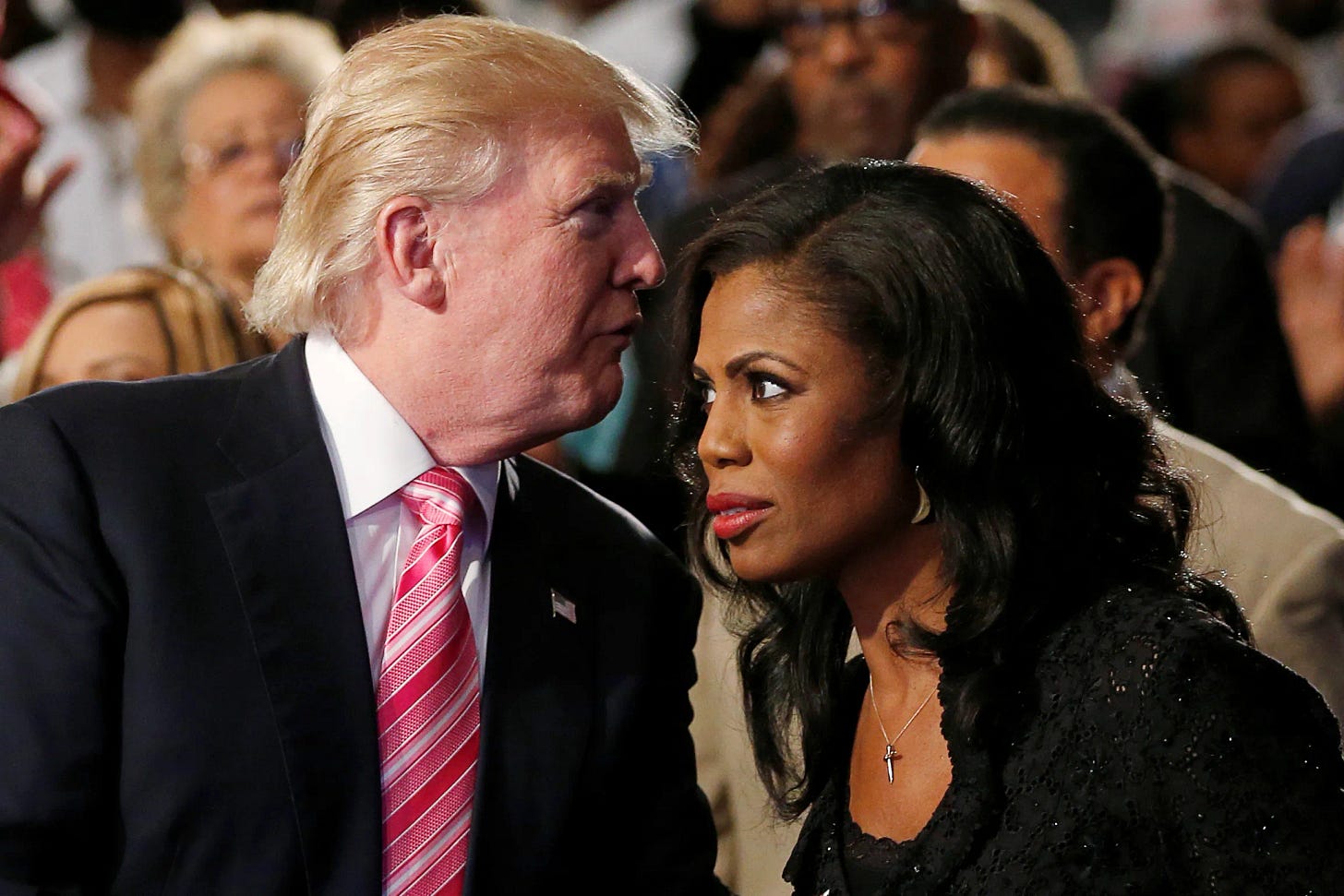Weekend Reading
Long reads for an (almost) Autumn weekend
“Crypto has spent a record $119 million in the 2024 federal elections, magnitudes more than it has ever spent before. This huge number means that crypto accounts for almost half of all corporate political contributions in this cycle. Its spending since 2010, totaling $129 million, puts the industry second only to fossil fuels, according to a report from the progressive consumer advocacy group Public Citizen. ‘It’s already 15 percent of all known corporate contributions since the Citizens United ruling,’ says Rick Claypool, a research director at Public Citizen who authored the report on crypto election spending, referring to the landmark 2010 Supreme Court decision that opened the floodgates for virtually unlimited corporate spending in elections through outside groups. Crypto’s ballooning political war chest and voracious appetite to dangle money in front of lawmakers speaks to the power it has amassed over the past decade and a half, even as it has struggled to gain any real traction with the public. Three-quarters of Americans who’ve heard of crypto aren’t confident in its safety and reliability, a 2023 Pew Research survey found, and only 7 percent of Americans used crypto last year, according to the Federal Reserve. Crypto’s reputation suffered in particular from the controversy surrounding crypto companies in the last few years, especially the catastrophic meltdown of FTX. Though the first cryptocurrency was launched in 2009, it still hasn’t penetrated as a mainstream payment method, with very few retailers allowing customers to pay directly with cryptocurrency. It remains mostly a vehicle for speculative investment. Despite that — or because of it — crypto companies have redoubled their efforts to help elect pro-crypto politicians and lobby for policies that would boost the sector’s growth. The industry wants the influx of money it’s spending to send the clear message that the crypto craze isn’t over — and in fact, isn’t a craze at all, but the lasting future of finance. ‘Crypto is here to stay,’ Paul Grewal, Coinbase’s chief legal officer, recently wrote in public comments regarding regulation. The sector’s most strident champions want you to believe that it’s a key issue for voters in the upcoming election, right next to inflation and health care. The industry is shouting from the rooftops that politicians can’t ignore crypto — and trying its hardest to make sure we won’t be able to either.” (Whizy Kim/Vox)
“For those still struggling to understand how Donald Trump could remain within sight of being our president again despite flattering dictators, inspiring an attempted coup, getting convicted on 34 felony counts, vowing to shred the Constitution and imprison opponents, and decorating his bathroom with state secrets, not to mention blustering semi-coherently in Tuesday’s debate, it’s worth looking back to a certain island in the South Pacific, and a man named Richard Hatch. As a contestant on the first season of the CBS reality show ‘Survivor,’ Mr. Hatch did something that, in the year 2000, seemed shocking. Instead of trying to win the show’s competition on its own terms — that is, voting in a straightforward manner on which of his fellow contestants most deserved to advance to the next round of competition — the often rude, sometimes randomly naked Mr. Hatch struck a strategic alliance to force out his strongest adversaries. Then, in full win-by-any-means-necessary mode, he outsmarted the producers by opting out of a key challenge and maneuvered himself to victory. But most shocking of all, he broke the golden rule of network television: You have to be likable. David Letterman even predicted ‘rioting in the streets’ if ‘the fat naked guy’ won. He was the most hated man in America. The TV business took notice. The early 2000s were a heady time for the new reality genre, filled with madcap experimentation, wild conceptual leaps and a lot of questionable judgment. At VH1, where I worked at the time, our innovation was to program shows that were at their core in-jokes about television itself. ‘Flavor of Love’ was a dating competition starring the giant-clock-wearing rap star (and non-obvious object of romantic ardor) Flavor Flav, but it was also a broad parody of the ABC hit ‘The Bachelor,’ which treated the quest for TV love with great solemnity.” (Michael Hirschorn/NYT)
“The National Geospatial-Intelligence Agency is moving to establish guidelines and standards for the use of artificial intelligence (AI) technology in critical areas such as identifying potential targets using satellite imagery. Based in Springfield, Virginia, NGA collects, analyzes and distributes geospatial intelligence derived from satellite and aerial imagery to support national security, military operations and disaster response efforts. Vice Adm. Frank Whitworth, director of NGA, announced last week that the agency is launching a pilot program aimed at ensuring the reliability and trustworthiness of AI models used by its analysts. The initiative seeks to create guidelines for evaluating the performance and accuracy of computer vision models employed in the analysis of satellite imagery and other geospatial data. ‘Accreditation will provide a standardized evaluation framework, implement risk management, promote a responsible AI culture, enhance AI trustworthiness, accelerate AI adoption and interoperability and recognize high quality AI while identifying areas for improvement,’ Whitworth said during a meeting with reporters. The move comes as NGA and other intelligence agencies increasingly rely on AI-powered computer vision to rapidly process the vast amounts of satellite imagery and geospatial data collected daily. By developing a consistent method for evaluating these AI models, the NGA aims to bolster confidence in the AI-generated insights that inform military operations and national security decision making.” (Sandra Erwin/SpaceNews)
“In a culture inclined to get its fill of drama from the screen over the stage, especially if the screen offerings are being furnished by the House of Mouse, one wants to trumpet that James Earl Jones, who died on Monday, at the age of ninety-three, was an actor greater than the reach of his instantly placeable voice. The corrective feels especially pressing as knee-jerk eulogies of Jones pour in from eighties and nineties kids, whose sticky-fingered nostalgia already dominates so much of our collective memory. Their first, formative encounter with Jones’s craft likely came courtesy of the acousmatic, in his vocal performances as Darth Vader (revived as recently as 2022, in A.I. form, in the Disney+ miniseries ‘Obi-Wan Kenobi’) and Mufasa (in both the 1994 and in several subsequent iterations of Disney’s ‘The Lion King’). These roles are celebrated along with other embodied Jones movie portrayals that are nonetheless distinguished by their sonority and bearing: the mesmerism of Terence Mann in ‘Field of Dreams,’ the comic humorlessness of ‘Coming to America’ ’s King Jaffe Joffer (first onscreen more than three decades ago, and then laid to rest in a recent sequel). The worry is that our remembrance will whittle down Jones’s vast career—spanning sixty years and encompassing more than two hundred turns in the theatre, on film, and on television—to, as with Plutarch’s nightingale picked clean, vox et praeterea nihil: a voice and nothing more. In a study of that name, the philosopher Mladen Dolar admits that “the voice appears to be the most familiar thing.” At the same time, to experience any voice is to witness the strange physics of that which emanates beyond the body ‘yet remains corporeal,’ biddable neither to words nor to flesh. This is a paradox best finessed by those, like Jones, who consider their true residence the theatre, where bodies must project by any means necessary. And what a voice!” (Lauren Michele Jackson/TNY)
“Ukraine has also intensified strikes against some Russian oil production facilities, hitting at the lifeblood of its enemy’s economy. And it has largely neutralized Russia’s Black Sea naval fleet. Diplomatic discussions this week have focused on whether the United States, Britain and France should give Ukraine permission to use long-range missiles they have provided to strike deep into Russia. Right now, those countries only allow Ukraine to hit military targets just over the Russian border. Britain and France are ready to permit longer strikes with their own weapons, but are waiting for President Biden to sign off, which he is poised to do, U.S. officials say. Mr. Biden remains hesitant to allow Ukraine to use American weapons for deep strikes, say the officials. Mr. Biden and Keir Starmer, the British prime minister, plan to discuss the issue when they meet in Washington on Friday. In Kyiv on Wednesday, Mr. Zelensky urged Secretary of State Antony J. Blinken and David Lammy, the British foreign secretary, to loosen restrictions on the weapons. And Mr. Blinken said afterward at news conferences in both Kyiv and Warsaw, Poland, that the United States would ‘adjust and adapt’ to conditions on the battlefield.’” (Edward Wong and Marc Santora/NYT)
“Russia started producing a new long-range attack drone called the Garpiya-A1 last year using Chinese engines and parts, which it has deployed in the war in Ukraine, according to two sources from a European intelligence agency and documents seen by Reuters. The intelligence – which included a production contract for the new drone, company correspondence on the manufacturing process and financial documents - indicated that IEMZ Kupol, a subsidiary of Russian state-owned weapons maker Almaz-Antey, produced more than 2,500 Garpiyas from July 2023 to July 2024. The existence of the new Russian drone incorporating Chinese technology has not been previously reported. IEMZ Kupol and Almaz-Antey did not respond to requests for comment. The two intelligence sources said that the Garpiya, which means Harpy in Russian, has been deployed against military and civilian targets in Ukraine, causing damage to critical infrastructure as well as both civilian and military casualties. They shared with Reuters what they said were images from Ukraine of the wreckage of a Garpiya, without providing further details. Reuters found information that reinforces this conclusion, but was unable to confirm the images independently. The sources asked that neither they nor their agency be identified due to the sensitivity of the information. They also asked that certain details, such as dates, related to the documents be withheld. Samuel Bendett, an adjunct senior fellow at the Center for a New American Security, a Washington DC-based think tank, told Reuters that Garpiya, if confirmed, would mark a departure from Russia's reliance on Iranian designs for long-range drones.” (Anthony Deutsch and Tom Balmforth/Reuters)
“The goal—their only goal—is to hurt people. It’s their kink. Hurting people of color titillates and excites them. It makes them feel powerful and important. When these small people see reports that Haitians in Springfield are afraid to send their children to school; when they read about the damage being done to immigrants’ property, it makes them feel strong. Imagine being able to contribute to a lynch mob raised against largely defenseless people from the comfort of your own home, simply by sharing a cat meme. That kind of power is intoxicating to some people, and what you see online is the real, honest thrill a racist experiences whenever they find someone to menace. I hate to give these people the satisfaction of being hurt by them. I hate to acknowledge their lies and insults, and I’d like to pretend that I can’t even hear them. As a New Yorker of Haitian descent, I’d like to tell these people ‘Kou langett manman ou!’ (which loosely translates to: ‘Have an inappropriate relationship with yourself, followed by your mother, posthaste’) and go about my day. But the pain racist Republicans and their cult spokespeople are causing is too real to laugh away. It’s too familiar to ignore. And it’s entirely too consistent with how this country has always treated Haitians to pretend that it isn’t all happening again.Haitians committed the greatest sin possible in the modern world: we took our freedom back from the white man. Haiti is the birthplace of the only successful slave-led revolt in the “New” or ‘Western’ world. Like everywhere else in this hemisphere, enslaved Haitians asked for their freedom, agitated for it, and were willing to negotiate terms with the enslavers for their emancipation. Unlike everywhere else, when those negotiations, and political dealings resulted in nothing more than the continuation of permanent chattel slavery, Haitians stopped talking and started rebelling—and by 1804 had liberated themselves from their suddenly-not-so-superior captors. White people have never forgiven us for being free.” (Elie Mystal/The Nation)
“Hadas Gold writes: ‘A Nevada judge has ruled that billionaire media mogul Rupert Murdoch and his family can hold a secret court battle over the future of his vast media empire behind closed doors. The judge rejected a petition by a coalition of media organizations, including CNN, The New York Times, NPR, the Washington Post, Reuters and ABC, to unseal the case and allow access.’ More here. >> Preston Padden, who worked closely with Rupert to build Fox Broadcasting in the 1990s, told me, ‘It is beyond ironic that the Murdochs, who print the dirty laundry of every other family in the world on the front pages of their tabloids, are blocking the media from gaining access to the Murdoch Family Trust Court proceeding that will impact the public by determining the control of the WSJ, Fox News, etc.’ >> Other Murdoch watchers are buzzing about Thursday's WSJ story about the ‘family rift.’ The story contained sensitive financial details that are only known to a small number of people, begging the question, who leaked to Rupert and Lachlan's paper?” (Brian Stelter/Reliable Sources)
“‘Donald calls me 15 to 20 times a day,’ Roy Cohn told me on the day we met. ‘He is always asking, ‘What is the status of this... and that?’’ It was 1980. I had been assigned to write a story on Donald Trump, the brash young developer who was then trying to make a name for himself in New York City, and I had come to see the man who, at the time, was in many ways Trump’s alter ego: the wily, menacing lawyer who had gained national renown, and enmity, for his ravenous anti-Communist grandstanding. Trump was 34 and using the connections of his father, Brooklyn and Queens real-estate developer Fred Trump, as he navigated the rough-and-tumble world of political bosses. He had recently opened the Grand Hyatt Hotel, bringing life back to a dreary area near Grand Central Terminal during a period when the city had yet to fully recover from near bankruptcy. His wife, Ivana, led me through the construction site in a white wool Thierry Mugler jumpsuit. ‘When will it be finished? When?,’ she shouted at workers as she clicked through in stiletto heels. The tabloids couldn’t get enough of the Trumps’ theatrics. And as Donald Trump’s Hyatt rose, so too did the hidden hand of his attorney Roy Cohn, always there to help with the shady tax abatements, the zoning variances, the sweetheart deals, and the threats to those who might stand in the project’s way. Cohn was best known as a ruthless prosecutor. During the Red Scare of the 1950s, he and Wisconsin senator Joe McCarthy, the fabulist and virulent nationalist crusader, had hauled dozens of alleged ‘Communist sympathizers’ before a Senate panel. Earlier, the House Un-American Activities Committee had skewered artists and entertainers on similar charges, resulting in a trail of fear, prison sentences, and ruined careers for hundreds, many of whom had found common cause in fighting Fascism. But in the decades since, Cohn had become the premier practitioner of hardball deal-making in New York, having mastered the arcane rules of the city’s Favor Bank (the local cabal of interconnected influence peddlers) and its magical ability to provide inside fixes for its machers and rogues. ‘You knew when you were in Cohn’s presence you were in the presence of pure evil,’ said lawyer Victor A. Kovner, who had known him for years.” (Marie Brenner/VF)
“What I like about success, Monsieur Sauvage, is the love that goes into it—not so much the surprise or the wonder, and certainly not the admiration. So, being a curiosity was a very tough job for me. Yes, what a thankless job. I can show you the contracts from my European tour: each time, after the theater and music hall shows, I had to go and dance in the cabarets, doing my own special numbers and entertaining people like I did in my cabaret in Montmartre. It was written in the contracts: “Entertain people” … Tweaking the beards of good old gentlemen, flattering the fat ladies, making them dance in their fancy coats and stiff outfits—you know the sort of thing. People really need their fun these days. And they thought I was having fun too, naturally. Sometimes I did, but not in the way you might think. I’ll start in 1928, with the Netherlands. Dutch people are serious and rosy. They eat well and don’t smile often, but when they do, they really mean it. Nearly all of them are strong, like the sea walls of their country. Everyone can speak three or four languages without a fuss. I soon became known around the Netherlands. Once, in a small, clean town—and quiet, so quiet—some people stopped me in the street. They tugged at my sleeve and asked me to dance. So I danced. Everyone was happy. There was a woman watching me with a small child in her arms, a pretty baby, and I picked him up. I wanted to kiss him, to rock him a little; I would have liked to dance with him a little too, but his mother gave me a dirty look, and before I knew it she’d snatched him away … Do you understand? She took her child away from the savage.” (Josephine Baker/The Paris Review)






